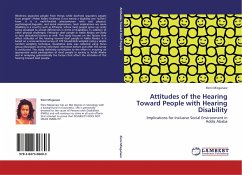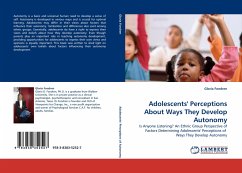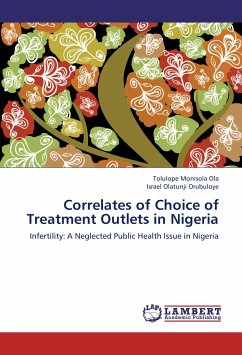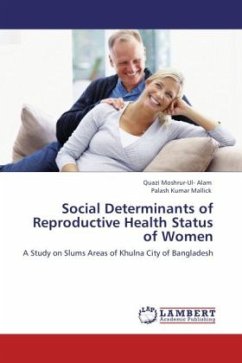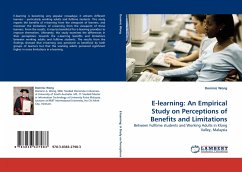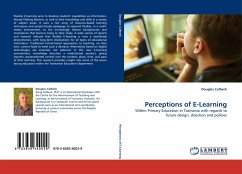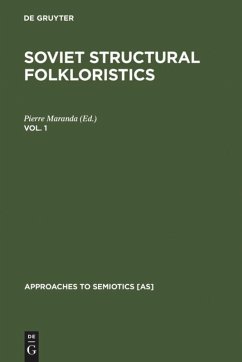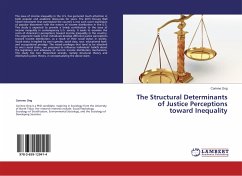
The Structural Determinants of Justice Perceptions toward Inequality
Versandkostenfrei!
Versandfertig in 6-10 Tagen
27,99 €
inkl. MwSt.

PAYBACK Punkte
14 °P sammeln!
The issue of income inequality in the U.S. has garnered much attention in both popular and academic discourses for years. The 2013 Occupy Wall Street movement that permeated the country is one such overt expression of popular discontent with the nature of income distribution in the U.S. This study is expected to provide a timely contribution to the issue of income inequality in contemporary U.S. society. It seeks to examine the roots of American's perceptions toward income inequality in the country. The argument made is that individuals develop different justice perceptions toward income distr...
The issue of income inequality in the U.S. has garnered much attention in both popular and academic discourses for years. The 2013 Occupy Wall Street movement that permeated the country is one such overt expression of popular discontent with the nature of income distribution in the U.S. This study is expected to provide a timely contribution to the issue of income inequality in contemporary U.S. society. It seeks to examine the roots of American's perceptions toward income inequality in the country. The argument made is that individuals develop different justice perceptions toward income distribution, as a result of their social status in society. Social status is implied by one's gender, social class, race, educational level, and occupational prestige. The varied privileges that tend to be attached to one's social status, are proposed to influence individuals' beliefs about the legitimacy and adequacy of current income distribution mechanisms. This study ties two theoretical strands, namely structural theory and distributive justice theory, in conceptualizing the above claim.



